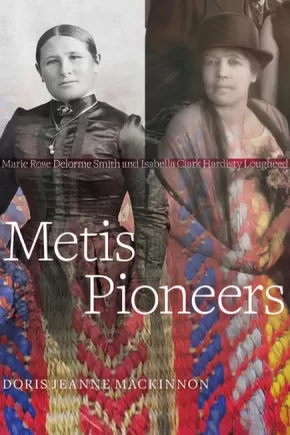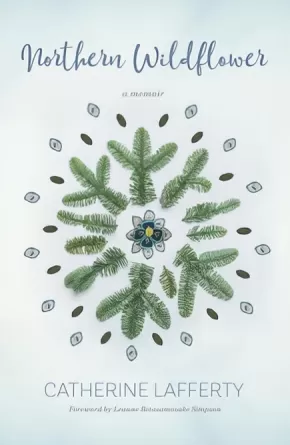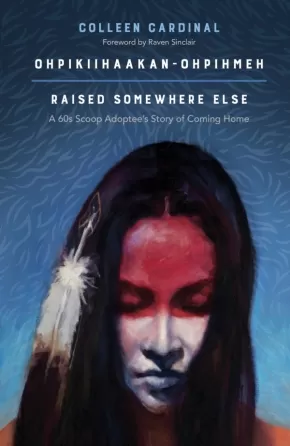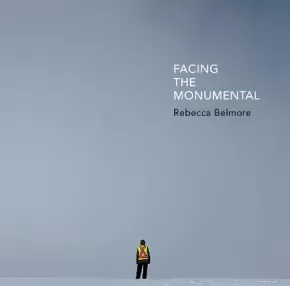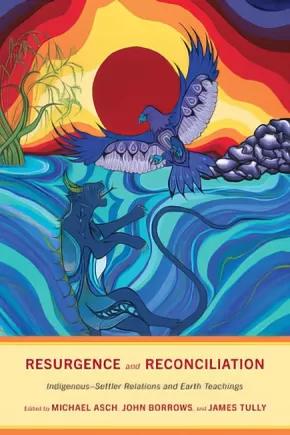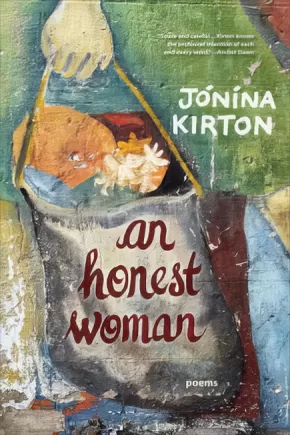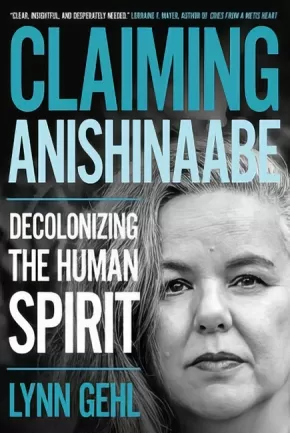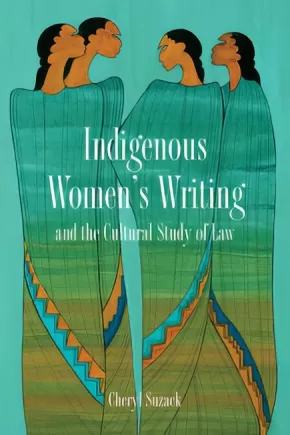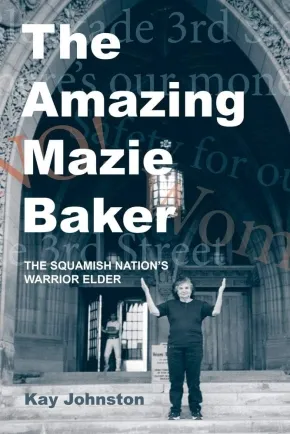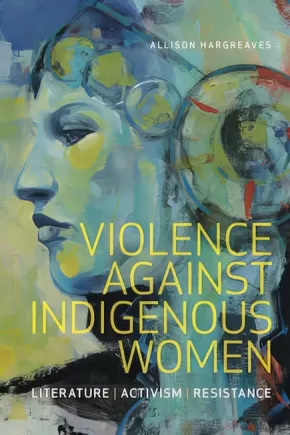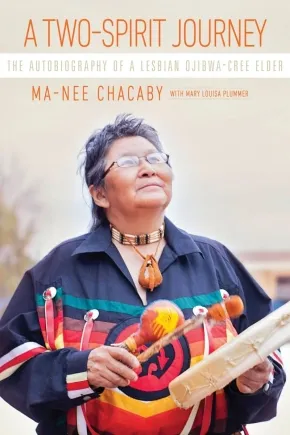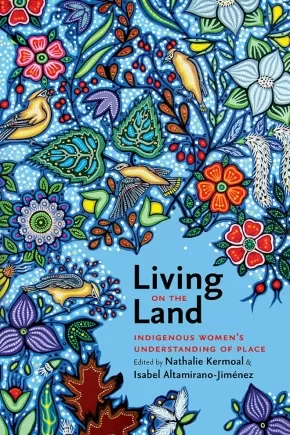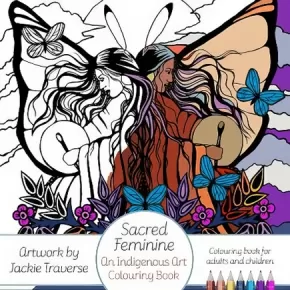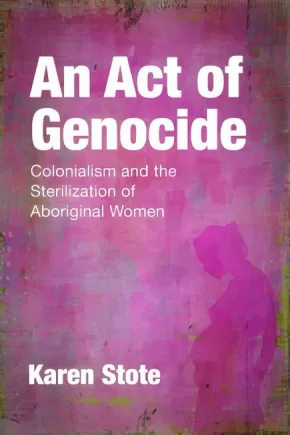
Women's Studies
106
-
120
of
131 Results;
Sort By
Go To
of 9
Métis Pioneers: Marie Rose Delorme Smith and Isabella Clark Hardisty Lougheed
$49.99
Format:
Paperback
Text Content Territories:
Indigenous Canadian; Métis;
Grade Levels: 12; University/College;
ISBN / Barcode: 9781772122718
Synopsis:
Synopsis:
In Métis Pioneers, Doris Jeanne MacKinnon compares the survival strategies of two Métis women born during the fur trade—one from the French-speaking free trade tradition and one from the English-speaking Hudson’s Bay Company tradition—who settled in southern Alberta as the Canadian West transitioned to a sedentary agricultural and industrial economy. MacKinnon provides rare insight into their lives, demonstrating the contributions Métis women made to the building of the Prairie West. This is a compelling tale of two women’s acts of quiet resistance in the final days of the British Empire.
Reviews
"[These two women's] individual paths provide interesting parallel stories about Métis women who survived and thrived as the Canadian west transitioned from the fur trade to a more sedentary agricultural economy. Marie Rose’s family was French-speaking Métis and a few served as Louis Riel’s soldiers. Isabella was from the English-speaking Métis stock. Both were born in 1861 and both married non-Indigenous men in unions that were influenced, or arranged outright, by their families. Both families had a strong history in the fur trade; Marie Rose’s were free traders and Isabella as part of the Hudson’s Bay Company. Both were community builders who later relied on their influence and circle of acquaintances for support after they became widows and fell on hard times. And the stories of both women showed how the Métis people continued to make significant contributions to the Canadian west even after the fur trade ended, an area of historical study that MacKinnon thinks is rife for discovery...." — Eric Volmers, Calgary Herald
"MacKinnon's book offers readers an in-depth look at the contributions each of the two women made to the growth of Canada's west, but more than that, it is a book about courage, resilience, determination and strength of character. The book was written to tell the truth..." — John Copley, Alberta Native News
"Whether or not the two women were ever in the same room together, their individual paths provide interesting parallel stories about Métis women who survived and thrived as the Canadian west transitioned from the fur trade to a more sedentary agricultural economy…And the stories of both women showed how the Métis people continued to make significant contributions to the Canadian west even after the fur trade ended, an area of historical study that MacKinnon thinks is rife for discovery."— Eric Volmers, Strength and Resilience
"This book deals with the lives of two frontier women - Isabella Lougheed and Marie Rose Smith. They both were Métis but their histories were miles apart. ... The author has found a rich source of history in these two women and offers them in a detailed account of their lives." — Alberta History
Additional Information
584 pages | 6.00" x 9.00"
Northern Wildflower: A Memoir
$20.00
Format:
Paperback
Text Content Territories:
Indigenous Canadian; First Nations; Dene;
Grade Levels: 12; University/College;
ISBN / Barcode: 9781773630403
Synopsis:
Synopsis:
This is the story of how a young northern girl picked herself up out of the rough and polished herself off like the diamond that she is in the land of the midnight sun.
Northern Wildflower is the beautifully written and powerful memoir of Catherine Lafferty. With startling honesty and a distinct voice, Lafferty tells her story of being a Dene woman growing up in Canada’s North and her struggles with intergenerational trauma, discrimination, poverty, addiction, love, and loss. Focusing on the importance of family ties, education, spiritualism, cultural identity, health, happiness, and the courage to speak the truth, Lafferty’s words bring cultural awareness and relativity to Indigenous and non-Indigenous readers alike, giving insight into the real issues many Indigenous women face and dispelling misconceptions about what life in the North is like.
Reviews
"Catherine Lafferty’s life story as a daughter and mother wanting more for her family and for herself is so completely inspiring. Northern Wildflower is a celebration of soul, grace and dignity. I am floored with the talent, courage and heart inside this wonderful debut." — Richard Van Camp, author of The Lesser Blessed
Additional Information
158 pages | 6.00" x 9.00"
Ohpikiihaakan-ohpihmeh — Raised Somewhere Else: A 60s Scoop Adoptee's Story of Coming Home
$20.00
Format:
Paperback
Text Content Territories:
Indigenous Canadian; First Nations; Cree (Nehiyawak); Plains Cree;
ISBN / Barcode: 9781773630205
Synopsis:
Synopsis:
During the 60s Scoop, over 20,000 Indigenous children in Canada were removed from their biological families, lands and culture and trafficked across provinces, borders and overseas to be raised in non-Indigenous households.
Ohpikiihaakan-ohpihmeh — Raised Somewhere Else delves into the personal and provocative narrative of Colleen Cardinal’s journey growing up in a non- Indigenous household as a 60s Scoop adoptee. Cardinal speaks frankly and intimately about instances of violence and abuse throughout her life, but this book is not a story of tragedy. It is a story of empowerment, reclamation and, ultimately, personal reconciliation. It is a form of Indigenous resistance through truth-telling, a story that informs the narrative on missing and murdered Indigenous women, colonial violence, racism and the Indigenous child welfare system.
Reviews
“With Canadians slowly awakening to the reality of the 60s Scoop and its ongoing repercussions, Cardinal’s inspiring work here is essential reading and will be an integral resource for generations to come.” — Waubgeshig Rice, author of Legacy
“Offers a window through which readers can see why cultural suppression is such a dark chapter in Canada’s history.” — Winnipeg Free Press
“I highly recommend reading this story for anyone interested in learning more about the Sixties Scoop and understanding what’s really happening under the stereotypes put on many Indigenous by those who do not truly understand.” — All Booked
Educator Information
The Canadian Indigenous Books for Schools list recommends this resource for Grades 10-12 for English Language Arts.
Additional Information
214 pages | 6.00" x 9.00" | Foreward by Raven Sinclair
Rebecca Belmore: Facing the Monumental
$40.00
Artists:
Editors:
Format:
Hardcover
Text Content Territories:
Indigenous Canadian; First Nations; Anishinaabeg; Ojibway; Lac Seul;
ISBN / Barcode: 9781773100968
Synopsis:
Synopsis:
Facing the monumental issues of our time.
In a 2012 performance piece, Rebecca Belmore transformed an oak tree surrounded by monuments to colonialism in Toronto's Queens Park into a temporary "non-monument" to the Earth.
For more than 30 years, she has given voice in her art to social and political issues, making her one of the most important contemporary artists working today. Employing a language that is both poetic and provocative, Belmore's art has tackled subjects such as water and land rights, women's lives and dignity, and state violence against Indigenous people. Writes Wanda Nanibush, "by capturing the universal truths of empathy, hope and transformation, her work positions the viewer as a witness and encourages us all to face what is monumental."
Rebecca Belmore: Facing the Monumental presents 28 of her most famous works, including Fountain, her entry to the 2005 Venice Biennale, and At Pelican Falls, her moving tribute to residential school survivors, as well as numerous new and in-progress works. The book also includes an essay by Wanda Nanibush, Curator of Indigenous Art at the AGO, that examines the intersection of art and politics.
Rebecca Belmore is one of Canada's most distinguished artists. She has won the Hnatyshyn Award (2009), the Governor General's Award in Visual and Media Arts (2013), and the Gershon Iskowitz Prize (2016). A member of Lac Seul First Nation, she was the first Aboriginal woman to represent Canada at the Venice Biennale. She has also participated in more than 60 one-person and group exhibitions around the world.
Additional Information
132 pages | 10.25" x 10.25" | 198 Illustrations
Resurgence and Reconciliation: Indigenous-Settler Relations and Earth Teachings
$42.95
Editors:
Format:
Paperback
Text Content Territories:
Indigenous Canadian;
Grade Levels: University/College;
ISBN / Barcode: 9781487523275
Synopsis:
Synopsis:
The two major schools of thought in Indigenous-Settler relations on the ground, in the courts, in public policy, and in research are resurgence and reconciliation. Resurgence refers to practices of Indigenous self-determination and cultural renewal whereas reconciliation refers to practices of reconciliation between Indigenous and Settler nations, such as nation-with-nation treaty negotiations. Reconciliation also refers to the sustainable reconciliation of both Indigenous and Settler peoples with the living earth as the grounds for both resurgence and Indigenous-Settler reconciliation.
Critically and constructively analyzing these two schools from a wide variety of perspectives and lived experiences, this volume connects both discourses to the ecosystem dynamics that animate the living earth. Resurgence and Reconciliation is multi-disciplinary, blending law, political science, political economy, women's studies, ecology, history, anthropology, sustainability, and climate change. Its dialogic approach strives to put these fields in conversation and draw out the connections and tensions between them.
By using “earth-teachings” to inform social practices, the editors and contributors offer a rich, innovative, and holistic way forward in response to the world’s most profound natural and social challenges. This timely volume shows how the complexities and interconnections of resurgence and reconciliation and the living earth are often overlooked in contemporary discourse and debate.
Reviews
"Resurgence and Reconciliation provides a broader critical framework from which readers may begin to reset the charged political landscape of reconciliation. In the quickly expanding literature, law, and activism, some of the urgency of reconciliation has been unnecessarily lost. This book calls for quiet contemplation and a peaceful reframing of discussion and negotiations in what has become a noisy, busy field of Canada’s national reconciliation project." - Jeffery G. Hewitt, Faculty of Law, University of Windsor
"This collection represents a sustained and engaged dialogue between eminent and emerging scholars of Indigenous rights as they attempt to conceptualize, critique, collaborate, and document relationships of reconciliation and resurgence. The editors and contributors take on the complex debates, challenges, intersections, and fractions facing Canadians, both Indigenous and non-Indigenous, making this a profoundly important counter-colonial work." - Jane McMillan, Department of Anthropology, St Francis Xavier University
Additional Information
384 pages | 6.00" x 9.00"
An Honest Woman
$16.95
Format:
Paperback
Text Content Territories:
Indigenous Canadian;
ISBN / Barcode: 9781772011449
Synopsis:
Synopsis:
An Honest Woman by Jonina Kirton confronts us with beauty and ugliness in the wholesome riot that is sex, love, and marriage. From the perspective of a mixed-race woman, Kirton engages with Simone de Beauvoir and Donald Trump to unravel the norms of femininity and sexuality that continue to adhere today.
Kirton recalls her own upbringing, during which she was told to find a good husband who would “make an honest woman” out of her. Exploring the lives of many women, including her mother, her contemporaries, and well-known sex-crime stories such as the case of Elisabeth Fritzl, Kirton mines the personal to loosen the grip of patriarchal and colonial impositions.
An Honest Woman explores the many ways the female body is shaped by questions that have been too political to ask: What happens when a woman decides to take her sexuality into her own hands, dismissing cultural norms and the expectations of her parents? How is a young woman’s sexuality influenced when she is perceived as an “exotic” other? Can a woman reconnect with her Indigenous community by choosing Indigenous lovers?
Daring and tender in their honesty and wisdom, these poems challenge the perception of women’s bodies as glamorous and marketable commodities and imagine an embodied female experience that accommodates the role of creativity and a nurturing relationship with the land.
Reviews
“Jonina Kirton is courageously honest about her life experiences as a female of Indigenous and immigrant ancestry. Many poems resonate deeply, as we identify with her personal quest to figure out who she is, and the unacceptable things done to her. Her raw honesty is unsettling and uncomfortable, because it can be our truth too. Her poems depict devaluation and dehumanization, grieving, lessons learned. Her poems offer important insights as to why there are thousands of missing and murdered Indigenous women.” — Senator Lillian E. Dyck
“When writing from the voice of between, writer and reader have no place to hide. Assumptions and camouflage fall away. Murdered, missing, and violated women and girl voices have been silenced. The story lethally repeats. Kirton picks over how she was raised familially and culturally like a crime scene. Too, she affirms, ‘I have been here forever and I will rise again and again.’ Tough, eloquent, revelatory, these poems are the very ones we are desperately in need of.” — Betsy Warland, author of Oscar of Between: A Memoir of Identity and Ideas
“I’m sure people have been looking at me strangely every time I gasp, but I can’t glance away from the page for even a second to notice. Some of the poems end sharply, with a punch; some deliberately leave me searching for the next line; others show the repetition of heartbreaking cycles of violence and oppression, but offer a portrayal of resilience, too.” — All Lit Up!
Educator Information
This book would be useful for Women's Studies, Creative Writing, English Language Arts, Poetry, and English courses. Recommended for grades 11-12 and university-college students.
Please be advised, this book contains explicit sexual references and references to sexual and physical abuse.
Additional Information
104 pages | 6.00" x 9.00"
Claiming Anishinaabe: Decolonizing the Human Spirit
$24.95
Format:
Paperback
Text Content Territories:
Indigenous Canadian; First Nations; Anishinaabeg;
Grade Levels: 12; University/College;
ISBN / Barcode: 9780889774919
Synopsis:
Synopsis:
Denied her Indigenous status, Lynn Gehl has been fighting her entire life to reclaim mino-pimadiziwin--the good life. Exploring Anishinaabeg philosophy and Anishinaabeg conceptions of truth, Gehl shows how she came to locate her spirit and decolonize her identity, thereby becoming, in her words, "fully human." Gehl also provides a harsh critique of Canada and takes on important anti-colonial battles, including sex discrimination in the Indian Act and the destruction of sacred places.
Reviews
Gehl is at the cutting edge with her concepts and ideas... She is on a journey and documents it well. — Lorelei Anne Lambert, author of Research for Indigenous Survival
Clear, insightful, and desperately needed... — Lorraine F. Mayer, author of Cries from a Métis Heart
The discussion of the heart and mind knowledge, as well as the discussion on the Anishinaabeg Clan System of Governance, [are] major contributions to the research. — Marlyn Bennett, co-editor of Pushing the Margins
"Throughout Claiming Anishinaabe, the conversation remains rooted in the destructive effects of oppressive power on the human spirit, and an insistence that both knowledge and spirituality are key in reclaiming one’s sense of self." — Quill & Quire
Educator Information
This book would be useful for the following subject areas or courses: Indigenous Studies, Canadian History (Post-Confederation), Social Science, Autobiography/Biography Studies, Spirituality, and Law.
Additional Information
176 pages | 5.50" x 8.50" | Includes line drawings
Indigenous Women's Writing and the Cultural Study of Law
$31.95
Format:
Paperback
Text Content Territories:
Indigenous American; Indigenous Canadian;
Grade Levels: University/College;
ISBN / Barcode: 9781442628588
Synopsis:
Synopsis:
In Indigenous Women’s Writing and the Cultural Study of Law, Cheryl Suzack explores Indigenous women’s writing in the post-civil rights period through close-reading analysis of major texts by Leslie Marmon Silko, Beatrice Culleton Mosionier, Louise Erdrich, and Winona LaDuke.
Working within a transnational framework that compares multiple tribal national contexts and U.S.-Canadian settler colonialism, Suzack sheds light on how these Indigenous writers use storytelling to engage in social justice activism by contesting discriminatory tribal membership codes, critiquing the dispossession of Indigenous women from their children, challenging dehumanizing blood quantum codes, and protesting colonial forms of land dispossession. Each chapter in this volume aligns a court case with a literary text to show how literature contributes to self-determination struggles. Situated at the intersections of critical race, Indigenous feminist, and social justice theories, Indigenous Women’s Writing and the Cultural Study of Law crafts an Indigenous-feminist literary model in order to demonstrate how Indigenous women respond to the narrow vision of law by recuperating other relationships–to themselves, the land, the community, and the settler-nation.
Additional Information
208 pages | 6.02" x 8.95"
Making Space for Indigenous Feminism - 2nd Edition
$35.00
Editors:
Format:
Paperback
Text Content Territories:
Indigenous;
Grade Levels: 12; University/College;
ISBN / Barcode: 9781552668832
Synopsis:
Synopsis:
The first edition of Making Space for Indigenous Feminism proposed that Indigenous feminism was a valid and indeed essential theoretical and activist position, and introduced a roster of important Indigenous feminist contributors. This new edition builds on the success and research of the first and provides updated and new chapters that cover a wide range of some of the most important issues facing Indigenous peoples today: violence against women, recovery of Indigenous self-determination, racism, misogyny and decolonization. Specifically, new chapters deal with Indigenous resurgence, feminism amongst the Sami and in Aboriginal Australia, neoliberal restructuring in Oaxaca, Canada’s settler racism and sexism, and missing and murdered Indigenous women and girls in Canada.
Written by Indigenous feminists and allies, this book provides a powerful and original intellectual and political contribution demonstrating that feminism has much to offer Indigenous women, and all Indigenous peoples, in their struggles against oppression.
Reviews
“Making Space for Indigenous Feminism is an essential resource that places gender justice at the core of our analyses of colonization and decolonization. What we learn is urgent: without addressing the systemic and symbolic character of the gendered violence that Indigenous women, girls, two-spirit, trans, and queer folks disproportionately face, decolonization will remain a man-made, colonial sham.” — Glen Coulthard, First Nations and Indigenous Studies, UBC
“This path-breaking collection brings together leading and emerging voices in the field, presenting critical innovative research that reminds us of the need for a consistent application of feminist analytic tools to understand colonialism and patriarchy as mutually constitutive and reinforcing forces. This collection is essential as an emancipatory tool for decolonization and Indigenous resurgence.” — Heidi Kiiwetinepinesiik Stark, University of Victoria
Additional Information
256 pages | 6.00" x 9.00"
The Amazing Mazie Baker: The Story of a Squamish Nation's Warrior Elder
$24.95
Format:
Paperback
Text Content Territories:
Indigenous Canadian; First Nations; Salish; Coast Salish; Squamish;
Reading Level: N/A
ISBN / Barcode: 9781987915068
Synopsis:
Synopsis:
In 1931, Mazie Antone was born into the Squamish Nation, a community caught between its traditional values of respect—for the land, the family and the band—and the secular, capitalistic legislation imposed by European settlers. When she was six, the police carried her off to St. Paul’s Indian Residential School, as mandated by the 1920 Indian Act. There, she endured months of beatings, malnourishment and lice infestations before her family collected Mazie and her siblings and fled across the border.
After the war, the family return to their home on the Capilano Reserve and Mazie began working at a cannery where she packed salmon for eleven years. Mazie married Alvie Baker, and together they raised nine children, but the legacy of residential school for Mazie and her generation meant they were alienated from their culture and language. Eventually Mazie reconnected with her Squamish identity and she began to mourn the loss of the old style of government by councils of hereditary chiefs and to criticize the corruption in the band leadership created in 1989 by federal legislation.
Galvanized by the injustices she saw committed against and within her community—especially against indigenous women, who were denied status and property rights—she began a long career of advocacy. She fought for housing for families in need; she pushed for transparency in local government; she defended ancestral lands; she shone a bright light into the darkest political corners. Her family called her ch’sken: Golden Eagle.
This intimate biography of a community leader illuminates a difficult, unresolved chapter of Canadian history and paints a portrait of a resilient and principled woman who faced down her every political foe, unflinching, irreverent, and uncompromising.
Additional Information
240 pages | 6.00" x 9.00" | Paperback
Violence Against Indigenous Women: Literature, Activism, Resistance
$29.99
Format:
Paperback
Text Content Territories:
Indigenous Canadian;
Grade Levels: University/College;
ISBN / Barcode: 9781771122399
Synopsis:
Synopsis:
Violence against Indigenous women in Canada is an ongoing crisis, with roots deep in the nation’s colonial history. Despite numerous policies and programs developed to address the issue, Indigenous women continue to be targeted for violence at disproportionate rates. What insights can literature contribute where dominant anti-violence initiatives have failed? Centring the voices of contemporary Indigenous women writers, this book argues for the important role that literature and storytelling can play in response to gendered colonial violence.
Indigenous communities have been organizing against violence since newcomers first arrived, but the cases of missing and murdered women have only recently garnered broad public attention. Violence Against Indigenous Women joins the conversation by analyzing the socially interventionist work of Indigenous women poets, playwrights, filmmakers, and fiction-writers. Organized as a series of case studies that pair literary interventions with recent sites of activism and policy-critique, the book puts literature in dialogue with anti-violence debate to illuminate new pathways toward action.
With the advent of provincial and national inquiries into missing and murdered Indigenous women and girls, a larger public conversation is now underway. Indigenous women’s literature is a critical site of knowledge-making and critique. Violence Against Indigenous Women provides a foundation for reading this literature in the context of Indigenous feminist scholarship and activism and the ongoing intellectual history of Indigenous women’s resistance.
Reviews
“This book makes an important – indeed, urgent – contribution to knowledge about violence against Indigenous women that ought to become required reading for politicians, activists, policy-makers, scholars, writers, and artists engaged in responding to this ongoing crisis.”
— Amber Dean, McMaster University, author of Remembering Vancouver’s Disappeared Women: Settler Colonialism and the Difficulty of Inheritance
"Hargreaves ... examines how stories of individual tragedies have been memorialized in venues such as human rights reports, poems, films, and plays. She convincingly explains that statistics and research projects produced with the best intentions may serve to reinforce the very colonial power dynamics that prevent the emergence of transformative solutions in the struggle to end violence against Indigenous women. ... For those in the field of comparative narrative criticism, it’s a work sure to inspire much discussion, debate, and reflection."
— Publisher's Weekly
Educator Information
This book would be useful for Indigenous Studies, Women's Studies, Literary Criticism, and Canadian Literature courses, or courses where activism is a key theme.
Additional Information
296 pages | 6.00" x 9.00"
A Two-Spirit Journey: The Autobiography of a Lesbian Ojibwa-Cree Elder
$24.95
Format:
Paperback
Text Content Territories:
Indigenous Canadian; First Nations; Anishinaabeg; Oji-Cree;
Grade Levels: 12; University/College;
ISBN / Barcode: 9780887558122
Synopsis:
Synopsis:
A compelling, harrowing, but ultimately uplifting story of resilience and self-discovery.
A Two-Spirit Journey is Ma-Nee Chacaby’s extraordinary account of her life as an Ojibwa-Cree lesbian. From her early, often harrowing memories of life and abuse in a remote Ojibwa community riven by poverty and alcoholism, Chacaby’s story is one of enduring and ultimately overcoming the social, economic, and health legacies of colonialism.
As a child, Chacaby learned spiritual and cultural traditions from her Cree grandmother and trapping, hunting, and bush survival skills from her Ojibwa stepfather. She also suffered physical and sexual abuse by different adults, and in her teen years became alcoholic herself. At twenty, Chacaby moved to Thunder Bay with her children to escape an abusive marriage. Abuse, compounded by racism, continued, but Chacaby found supports to help herself and others. Over the following decades, she achieved sobriety; trained and worked as an alcoholism counsellor; raised her children and fostered many others; learned to live with visual impairment; and came out as a lesbian. In 2013, Chacaby led the first gay pride parade in Thunder Bay.
Ma-Nee Chacaby has emerged from hardship grounded in faith, compassion, humour, and resilience. Her memoir provides unprecedented insights into the challenges still faced by many Indigenous people.
Awards
- 2025 Canada Reads winner
Reviews
“From groundbreaking and controversial AIDS awareness programs in the 1990s to the work she continues to do today, both with her own family and her extended reserve family, her life and this memoir ultimately serve as handbook of hope.” — Lara Rae, Winnipeg Free Press
"A Two-Spirit Journey is a raw and emotional story that doesn’t just show readers the author’s scars. Chacaby bares all in an honest telling of her life that includes flaws, like her struggles with substance abuse and a sometimes rocky path to sobriety. Despite the turmoil, the autobiography does have its uplifting moments and characters. Heartwarming stories of childhood friendships, and most importantly a powerful relationship between the author and her grandmother, weave feelings of optimism and hope into a life that is oftentimes surrounded by darkness.” — Scott Paradis, tbnewswatch.com
“An extraordinary account of an extraordinary life and very highly recommended for community and academic library Contemporary Biography, LGBT, and Native American Studies collections.” — Midwest Book Review
“Activist, survivor, mother, counsellor, Ma-Nee Chacaby recounts her sometimes harrowing life with a calm and steady voice, infused with resilience and compassion. Effectively designed and edited to appeal to both the general public and those engaged in Indigenous studies, A Two-Spirit Journey presents an important story, powerfully told.” — Nik Burton, Rick Walker, and Carolyn Wood, Judges, 2017 Manitoba Book Awards
“The story that Chacaby and Plummer recount is truly an extraordinary one, but it is also one that will resonate with many people whose stories have not been often told. The perspective of a lesbian Ojibwa-Cree elder is invaluable for LGBT Native youth and will be an enriching experience for many others, particularly those who have experienced abuse, disability, poverty, or the effects of colonization.” — Kai Pyle, Studies in American Indian Literatures
Educator Information
This book would be useful for courses in women's studies, social studies, and gender studies. Recommended for students in grade 12 or at a college/university level.
Caution: discussion of physical and sexual abuse.
This resource is also available in French: Un parcours bispirituel: Recit d'une ainee ojibwe-crie lesbienne.
Additional Information
256 pages | 6.00" x 9.00"
Living on the Land: Indigenous Women's Understanding of Place
$27.99
Format:
Paperback
Text Content Territories:
Indigenous Canadian; Métis; First Nations; Indigenous;
Reading Level: N/A
ISBN / Barcode: 9781771990417
Synopsis:
Synopsis:
An extensive body of literature on Indigenous knowledge and ways of knowing has been written since the 1980s. This research has for the most part been conducted by scholars operating within Western epistemological frameworks that tend not only to deny the subjectivity of knowledge but also to privilege masculine authority. As a result, the information gathered predominantly reflects the types of knowledge traditionally held by men, yielding a perspective that is at once gendered and incomplete. Even those academics, communities, and governments interested in consulting with Indigenous peoples for the purposes of planning, monitoring, and managing land use have largely ignored the knowledge traditionally produced, preserved, and transmitted by Indigenous women. While this omission reflects patriarchal assumptions, it may also be the result of the reductionist tendencies of researchers, who have attempted to organize Indigenous knowledge so as to align it with Western scientific categories, and of policy makers, who have sought to deploy such knowledge in the service of external priorities. Such efforts to apply Indigenous knowledge have had the effect of abstracting this knowledge from place as well as from the world view and community—and by extension the gender—to which it is inextricably connected. Living on the Land examines how patriarchy, gender, and colonialism have shaped the experiences of Indigenous women as both knowers and producers of knowledge. From a variety of methodological perspectives, contributors to the volume explore the nature and scope of Indigenous women’s knowledge, its rootedness in relationships both human and spiritual, and its inseparability from land and landscape. From the reconstruction of cultural and ecological heritage by Naskapi women in Québec to the medical expertise of Métis women in western Canada to the mapping and securing of land rights in Nicaragua, Living on the Land focuses on the integral role of women as stewards of the land and governors of the community. Together, these contributions point to a distinctive set of challenges and possibilities for Indigenous women and their communities.
Additional Information
240 pages | 6.00" x 9.00" | Paperback
Sacred Feminine: An Indigenous Art Colouring Book
$24.00
Artists:
Format:
Paperback
Text Content Territories:
Indigenous Canadian;
ISBN / Barcode: 9781552669198
Synopsis:
Synopsis:
Colouring book for adults and children.
Sacred Feminine is a colouring book by Anishinaabe artist Jackie Traverse.
The beautiful and intricate works of art within depict images of strength, resilience, and empowerment. With each image, the artist explains the symbolism and meaning represented. The first of its kind, Sacred Feminine is intended to heal and educate readers and colourers of all ages.
Additional Information
64 pages | 10.00" x 8.00"
An Act of Genocide: Colonialism and the Sterilization of Aboriginal Women
$25.00
Format:
Paperback
Text Content Territories:
Indigenous Canadian;
Grade Levels: University/College;
ISBN / Barcode: 9781552667323
Synopsis:
Synopsis:
An in-depth investigation of the forced sterilization of Aboriginal women carried out by the Canadian government.
During the 1900s eugenics gained favour as a means of controlling the birth rate among “undesirable” populations in Canada. Though many people were targeted, the coercive sterilization of one group has gone largely unnoticed. An Act of Genocide unpacks long-buried archival evidence to begin documenting the forced sterilization of Aboriginal women in Canada. Grounding this evidence within the context of colonialism, the oppression of women and the denial of Indigenous sovereignty, Karen Stote argues that this coercive sterilization must be considered in relation to the larger goals of Indian policy — to gain access to Indigenous lands and resources while reducing the numbers of those to whom the federal government has obligations. Stote also contends that, in accordance with the original meaning of the term, this sterilization should be understood as an act of genocide, and she explores the ways Canada has managed to avoid this charge. This lucid, engaging book explicitly challenges Canadians to take up their responsibilities as treaty partners, to reconsider their history and to hold their government to account for its treatment of Indigenous peoples.
Reviews
"In An Act of Genocide, Karen Stote examines a controversial topic of which few Canadians are aware: the coercive sterilizations of Aboriginal women." - Morgran Grant
Educator Information
Table of Contents
Preface
Introduction
Eugenics, Feminism and the Woman Question
Indian Policy and Aboriginal Women
Sterilization, Birth Control and Abusive Abortions
Settling the Past
Canada, Genocide and Aboriginal Peoples
Conclusion
References
Index
Additional Information
192 pages | 6.00" x 9.00"
Sort By
Go To
of 9

